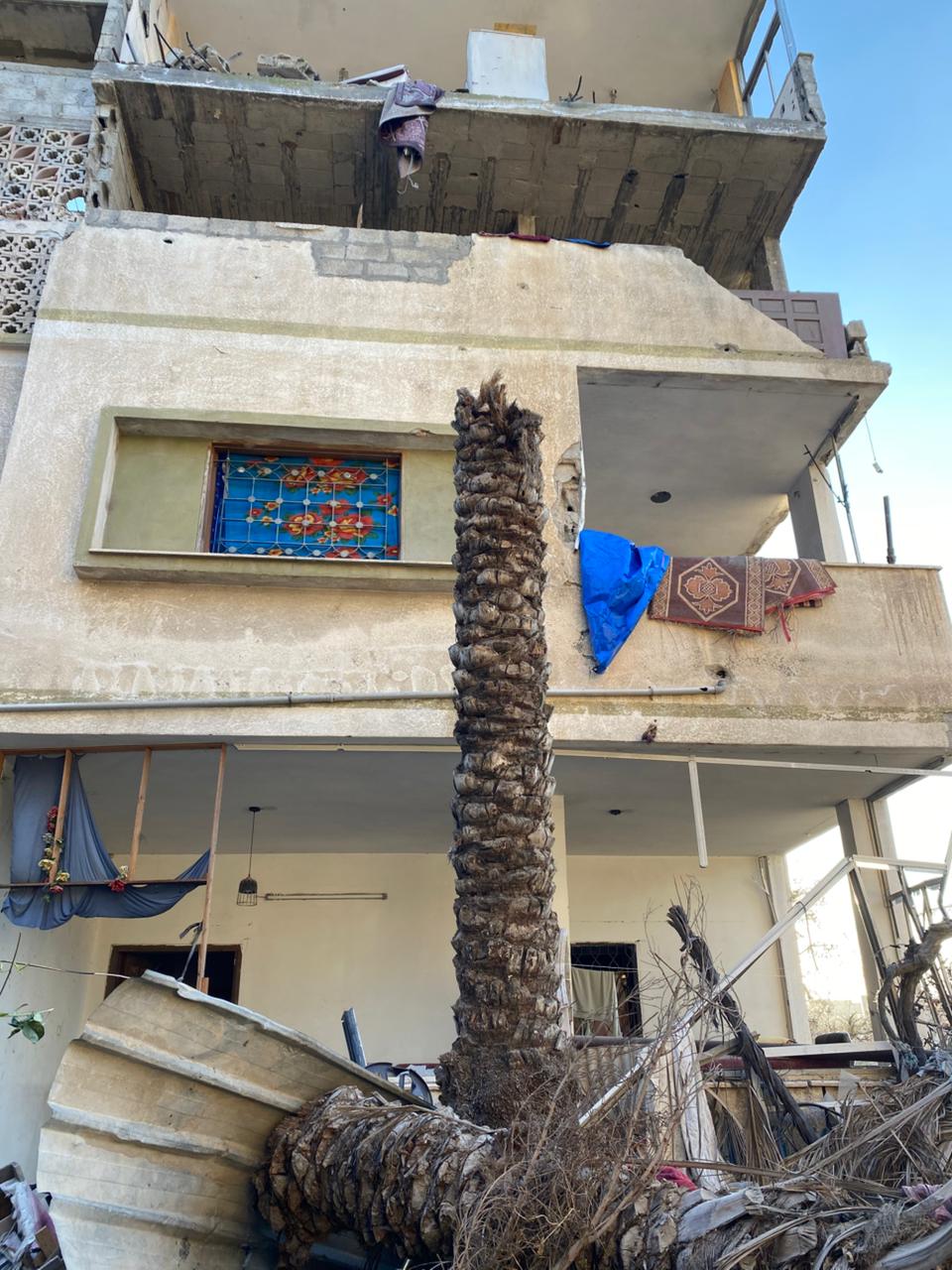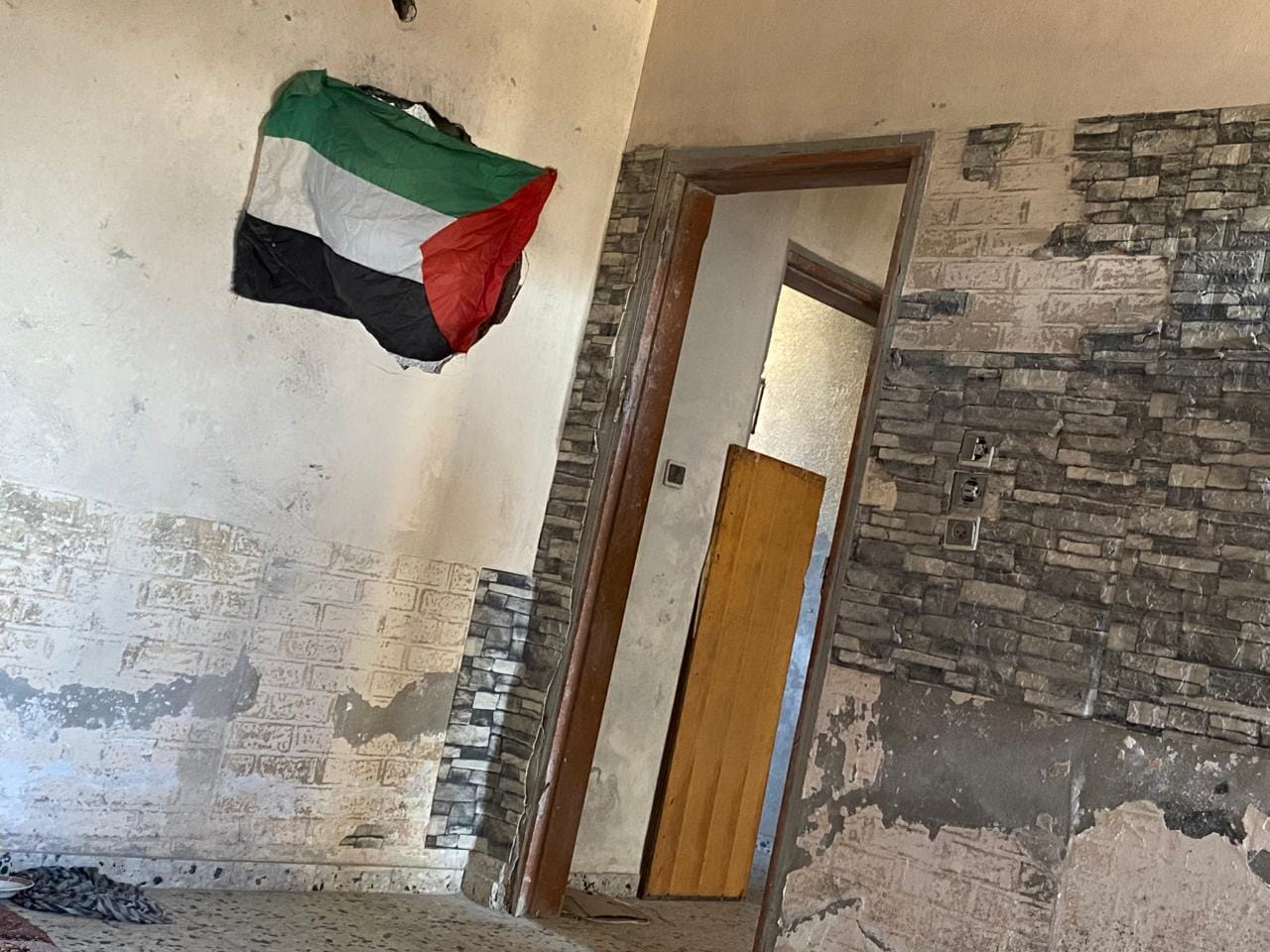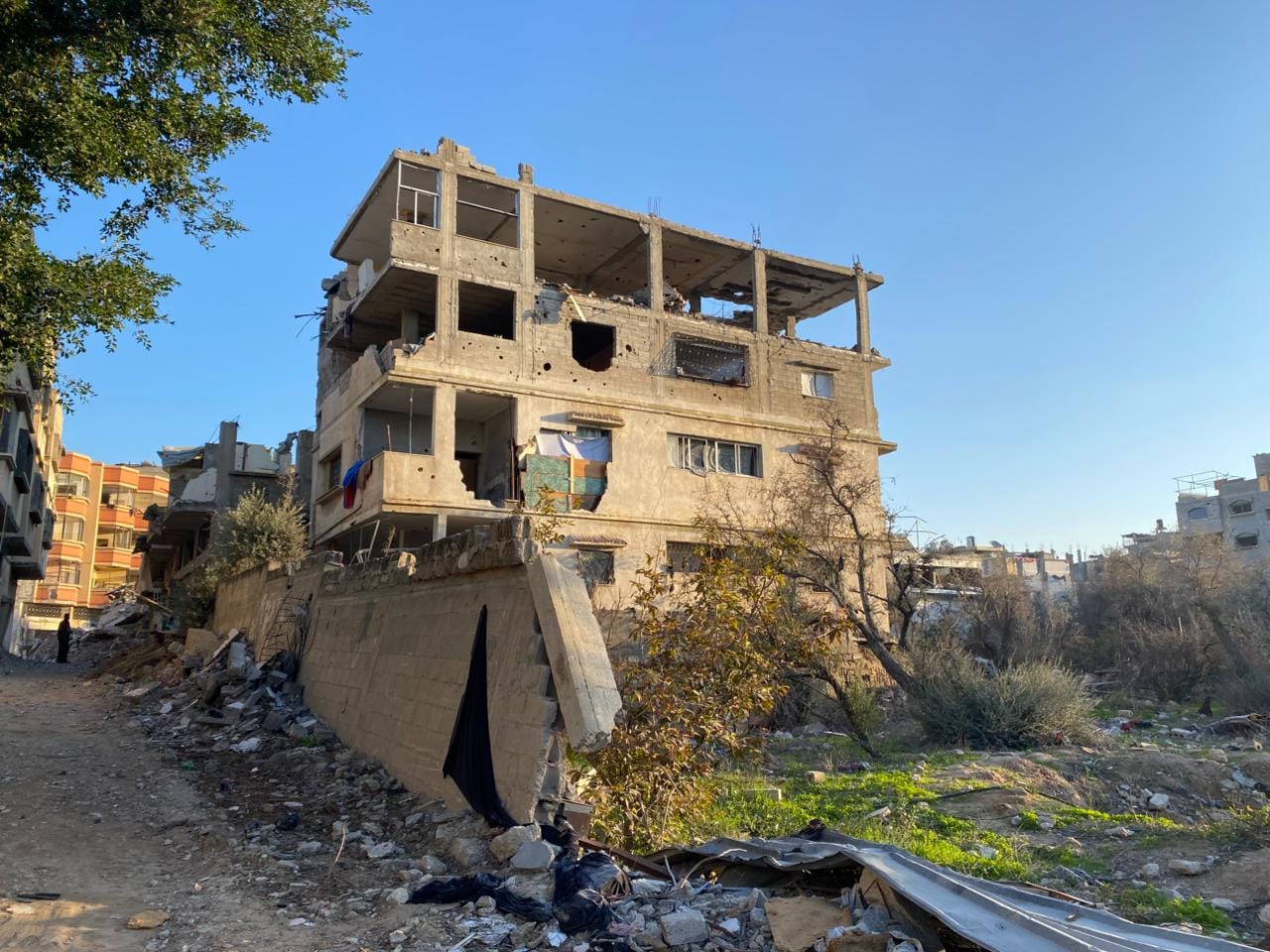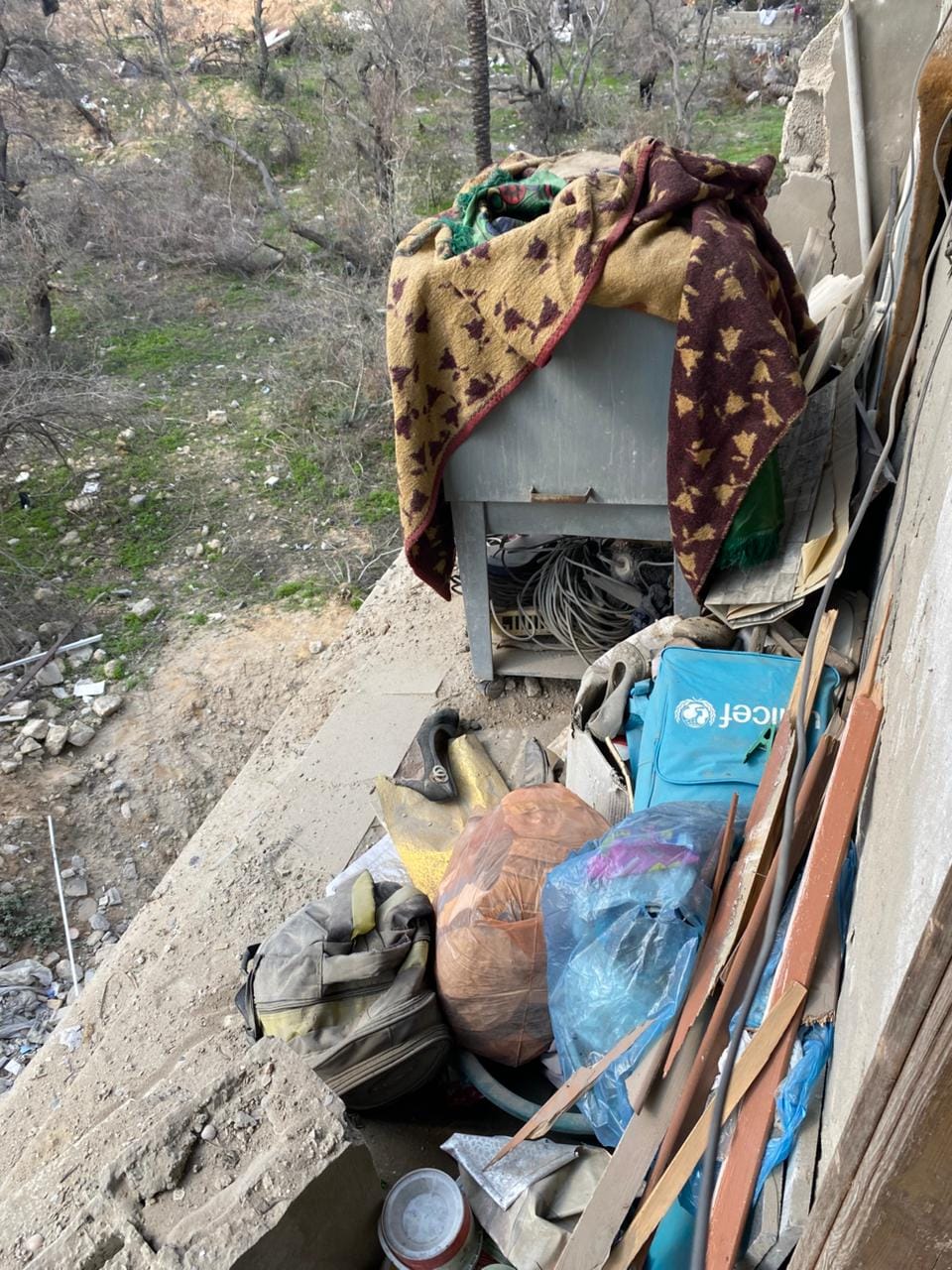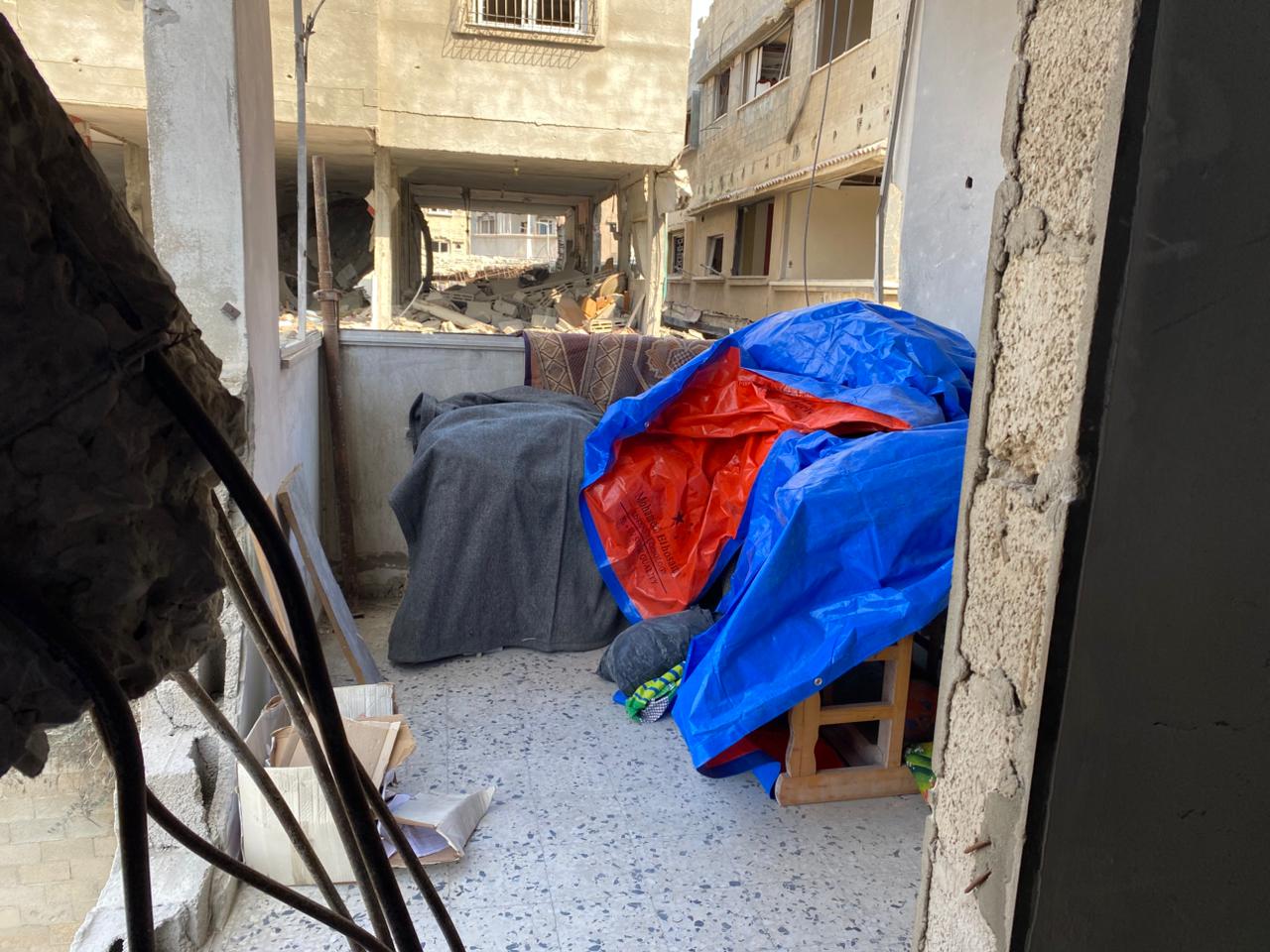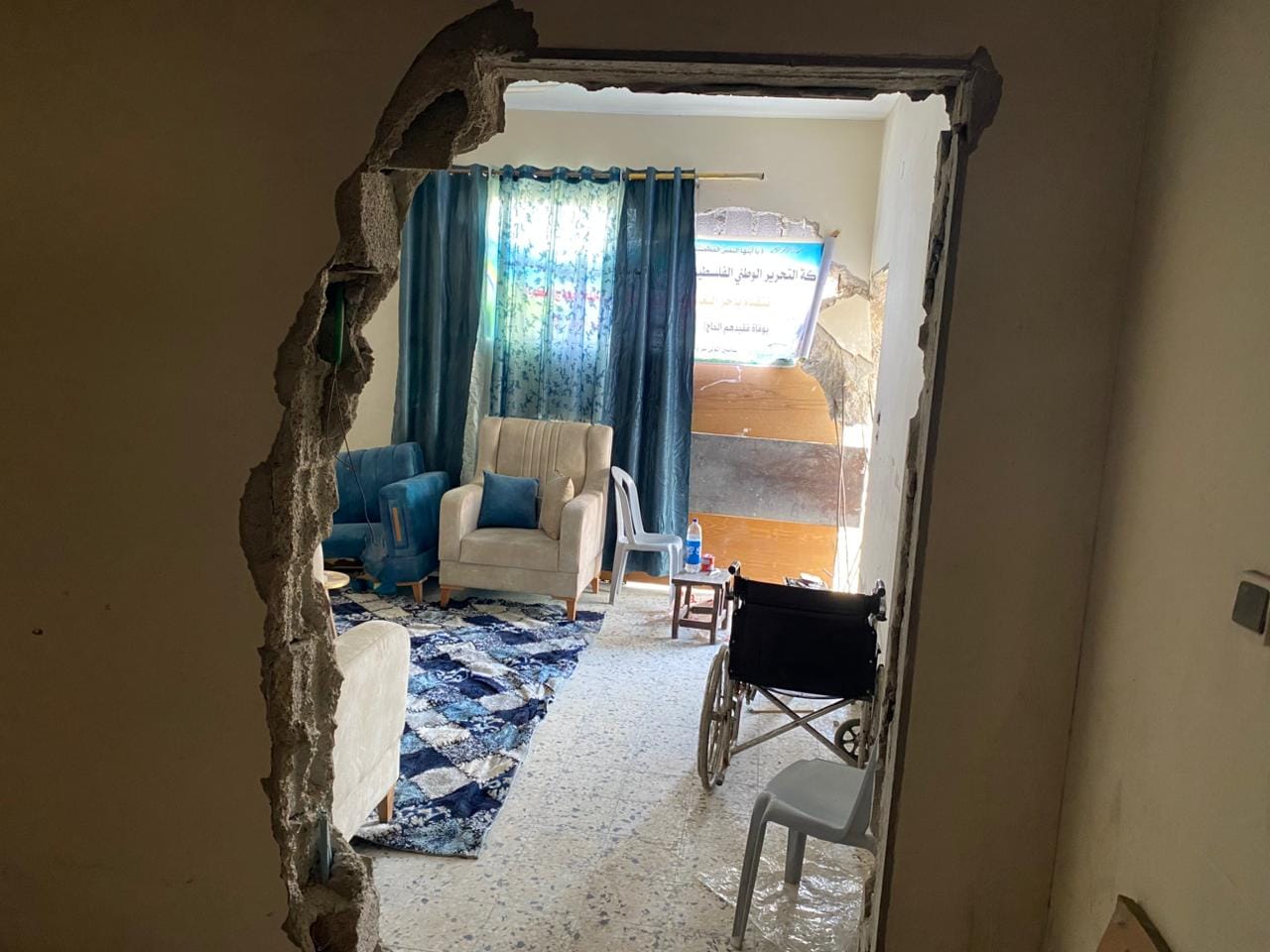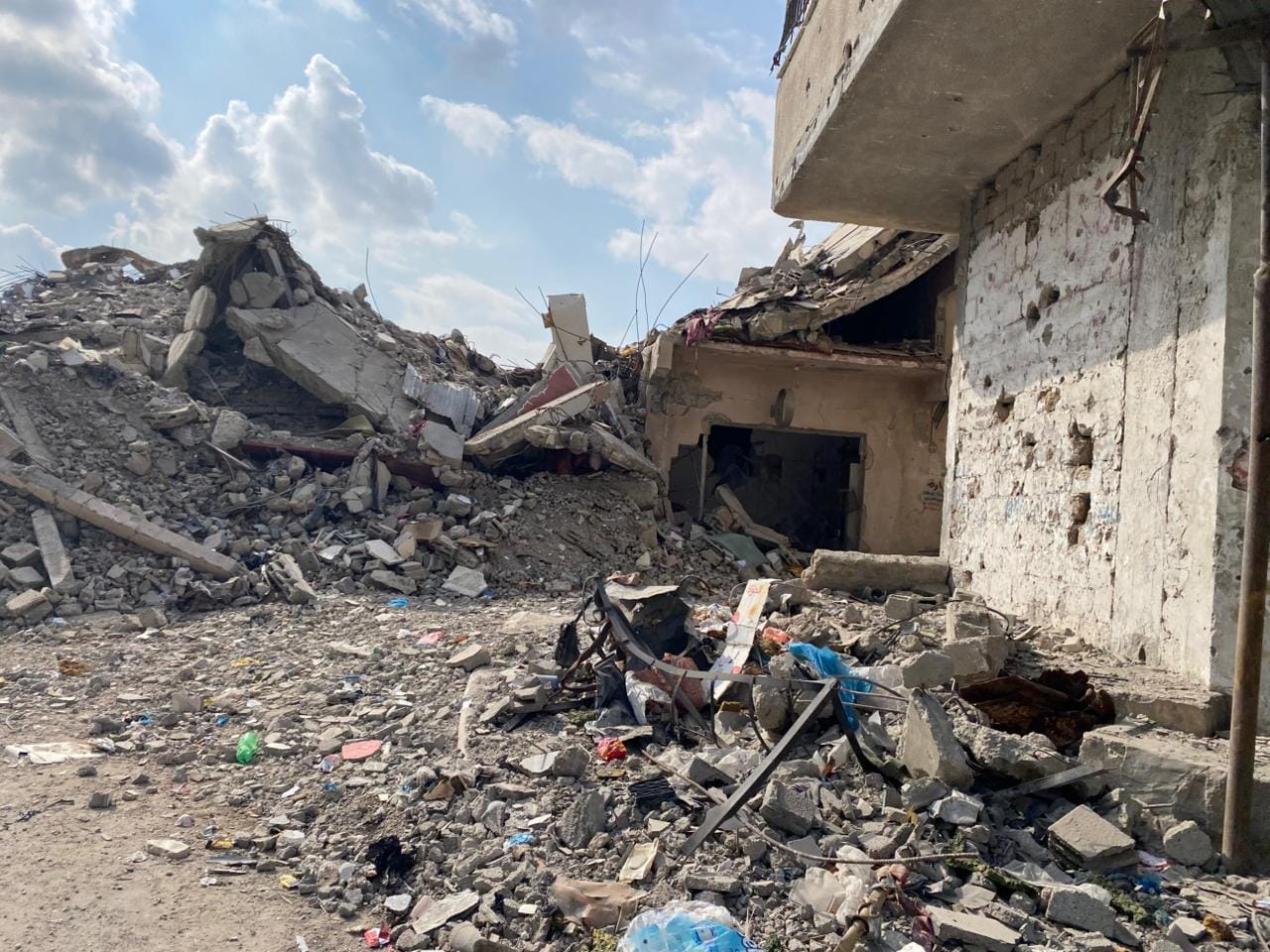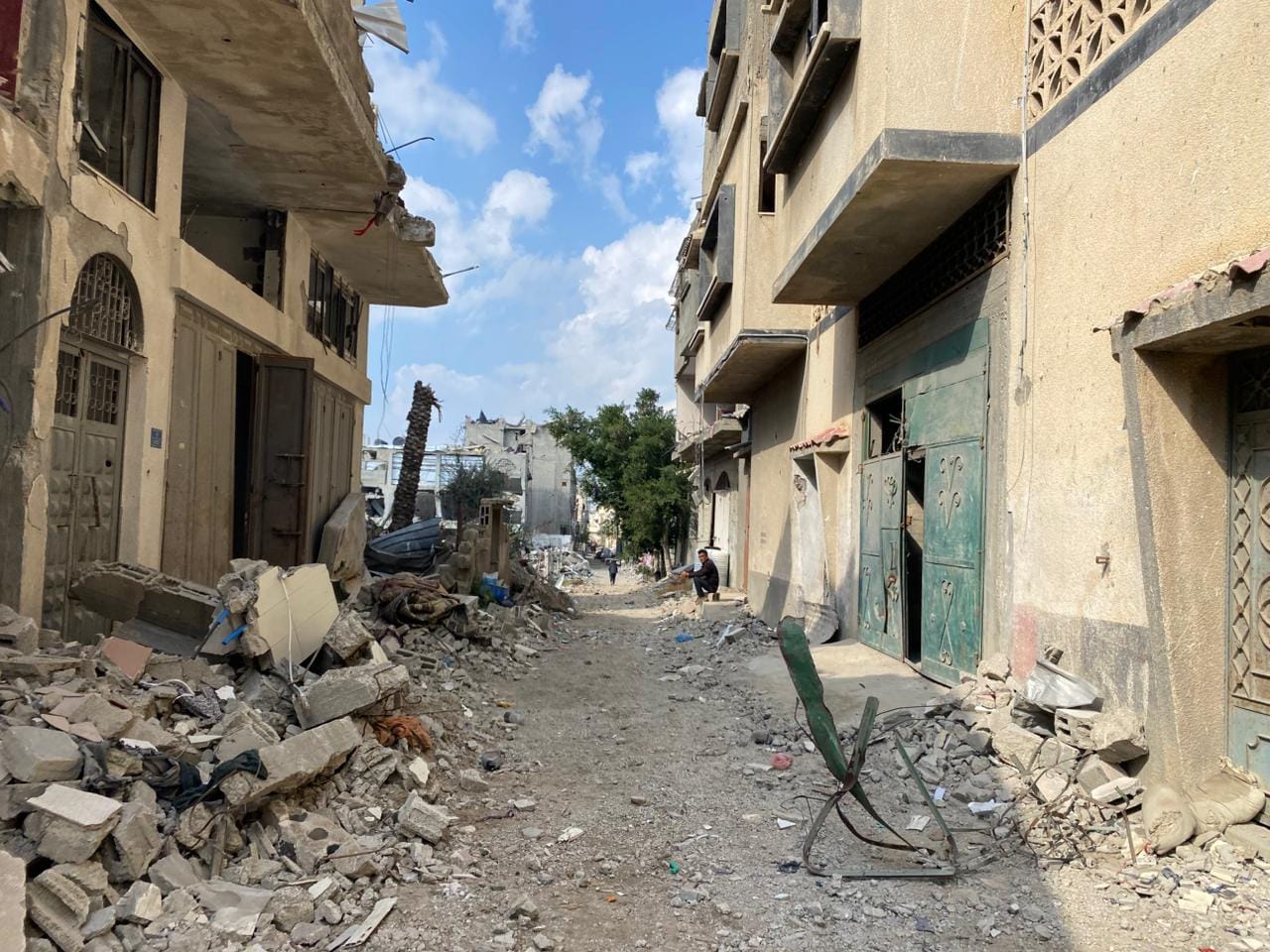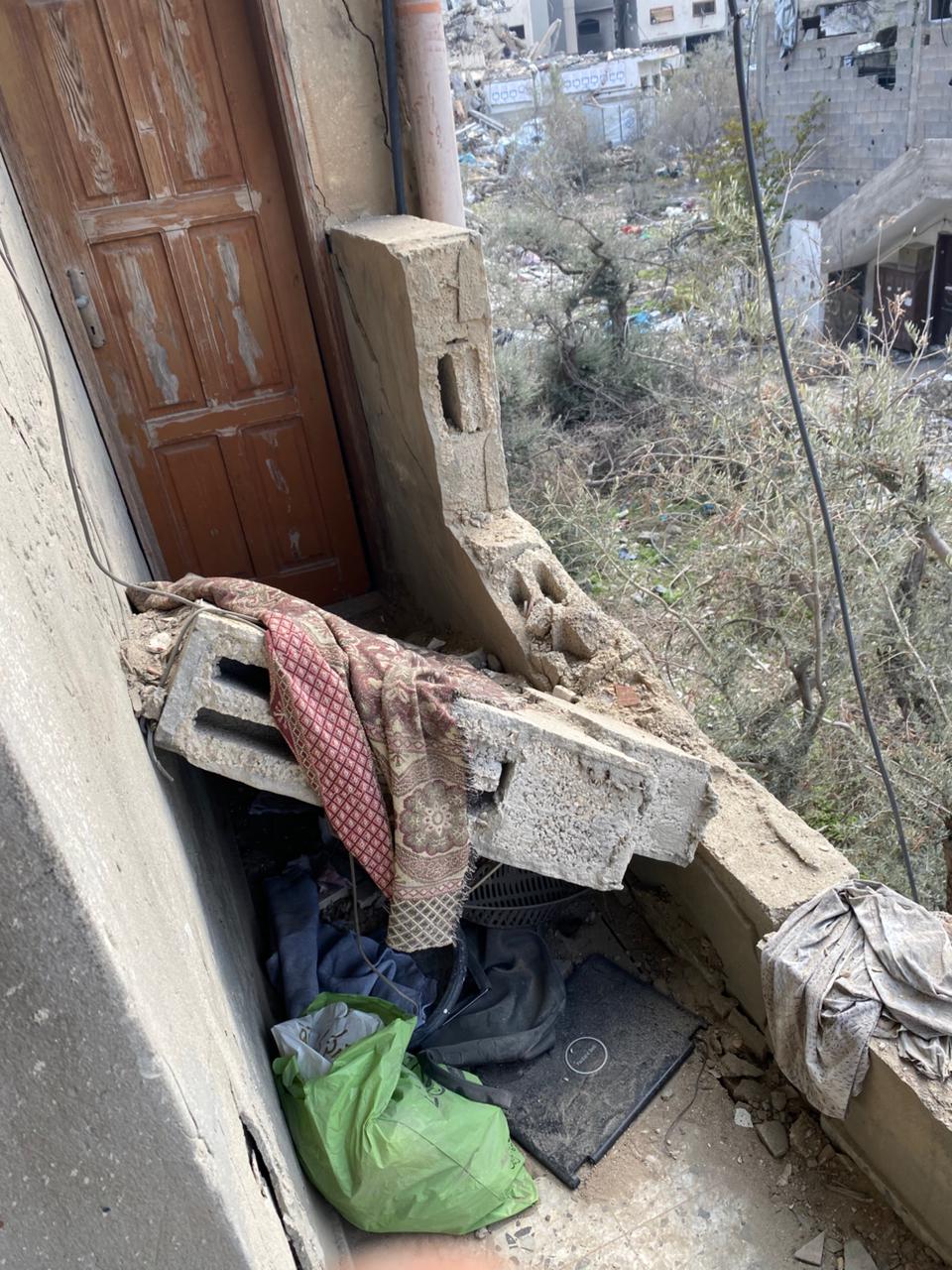Returning Home, Monday 3 Feb 2025
On the way back home, I saw phrases written on walls by people as they moved from one place to another. What struck me the most were their words about resistance—they consider their presence in the north as resistance and their refusal to give up the land
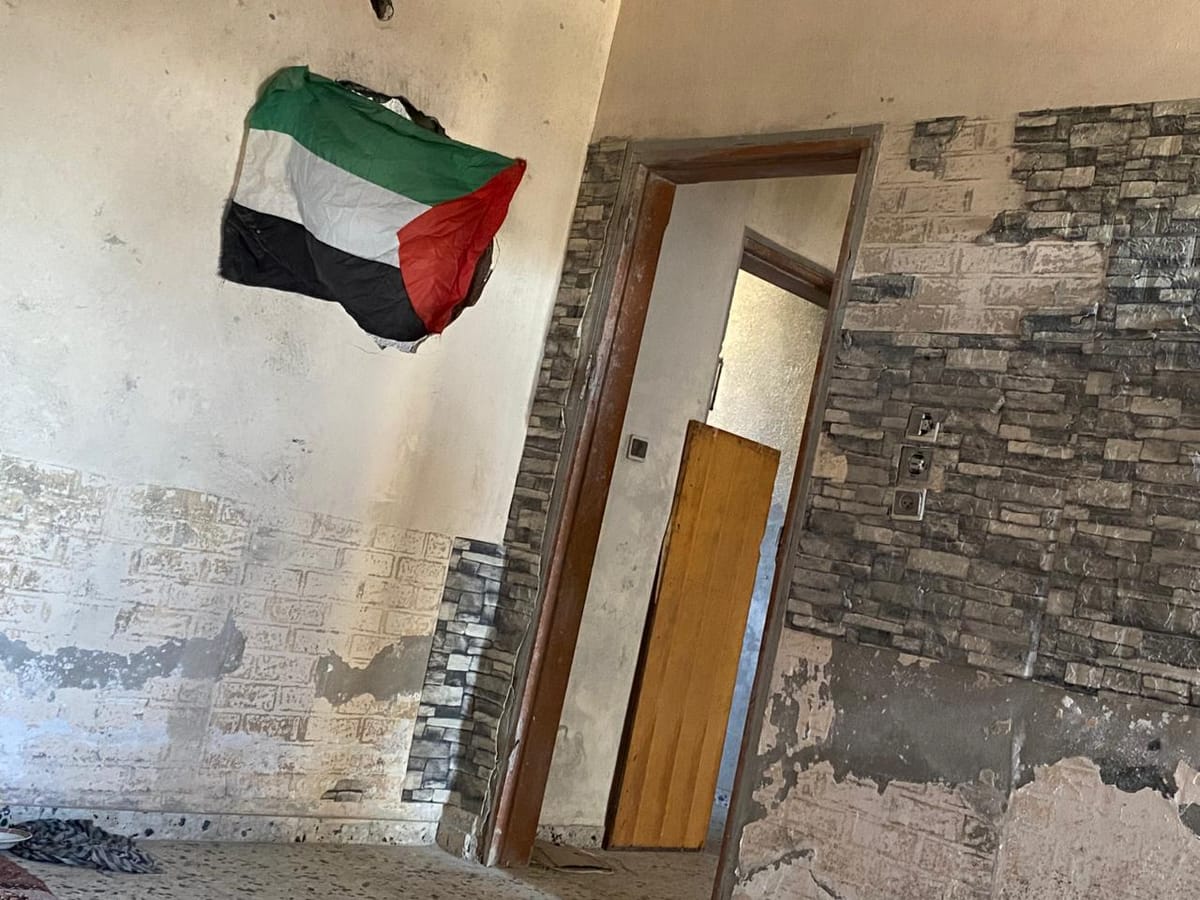
I started packing my bag on Thursday night to return home Friday morning. I didn’t carry much with me because I would be heading back to the South the day after. My mother, father, and brother Ahmed went home last Monday at 7 a.m. when the return route opened. My father, who limps due to an injury to his leg, walked 14 kilometers to return home alongside my mother. My father walked from Al-Rashid Street, which the occupation allowed us to pass through on the first day of the truce. We couldn’t return via Salah Al-Din Road in our car because it was destroyed in the war and needs repairs. Anyone who has a means of transportation won’t be able to go back to the south again, as Salah Al-Din Road is a one-way route for those returning north.
This is happening just as it did when we were first displaced from our homes. The return journey took place in the morning without us knowing. We were asleep when people started returning to their remaining homes in the city center. As for the homes located near the border, people are not allowed to return to them until the second phase begins.
I took my bag and started walking along Al-Rashid Street, which is only open to pedestrians, from Al-Nuseirat to Al-Nabulsi Roundabout in Gaza—a distance of about 7 kilometers. Despite my poor health, I walked. Two days ago, I had some tests done, and the doctor diagnosed me with a colon ulcer due to unhealthy eating throughout the aggression. Now, I’m waiting to schedule a procedure to assess my condition, with fears that nothing can be done at the moment due to the collapse of the healthcare sector.
Dust is everywhere. I felt nauseous multiple times, my head was pounding, and the ash from the destroyed houses mixed with the fresh sea air makes us sick and poisons our cells.
The city is lifeless. They have changed all the landmarks of the city. We don’t know where we are anymore. We often get lost and drift further into scenes of destruction, with one question lingering in my mind: When will everything return to how it was?
I couldn’t feel at ease despite returning because the grief was greater than any other feelings. I sighed twice—the first time when I reached Shuja'iyya, and I think that sigh was due to the exhaustion I felt throughout the journey. The second time was when I hugged my aunt Nadiya, whom I hadn’t seen in a year and a half. All this time, we’ve been talking on the phone, not knowing if we’d ever see each other again. But fate is capable of anything.
I went from my aunt’s house to our home, carrying a 2-kilogram gas cylinder for my mother. Cooking gas is unavailable in northern Gaza; they use firewood for cooking. My mother told me to bring her the small cylinder to help her a little.
I entered the house, searching for my belongings, my clothes, my books, and my room. My room is destroyed. Part of the wall is missing, there are no windows, and all the furniture is ruined. I had left a collection of books that had arrived from Jordan before the aggression. My heart was attached to those books. I found some of them, but not the rest. My feelings were strange; I had never felt this way before. How could I feel like a stranger in my own home, in my own neighborhood? How could I feel safe when the occupation has destroyed all our memories? The entire neighborhood is in ruins, and everyone there has changed. There’s no water, no electricity, and the wait is killing us.
The occupation has destroyed our lives. This aggression has affected everything. They knew well that what hurts us the most is the loss of our memories, more than death itself. They destroyed homes despite having the ability not to and without needing to, but they want to erase life from our imagination.
The streets are stranger than the last time I left the area and fled to the south for my life. On the way back home, I saw phrases written on walls by people as they moved from one place to another. What struck me the most were their words about resistance—they consider their presence in the north as resistance and their refusal to give up the land. This is what I read in them. After passing through the city center, I got into a car and heard a man say that it would take years for Gaza to return to how it was. Another man replied, “Do you see all this destruction in the city center? It’s nothing compared to the destruction in Jabalia and Beit Lahia. Here, you feel a little life; there, there is no life.”
All these conflicting emotions made me lose touch with everything around me, and I don’t truly know what I’m feeling—grief, fear, a bit of joy, and a little safety. I didn’t feel like I had been away from home for too long. At times, I felt deeply saddened by it, and at other times, I felt nothing at all. But now, I feel like crying. I want to cry over everything that has passed and start a new life without thinking about death from a bomb or a missile. The war has taken a huge part of my soul.
